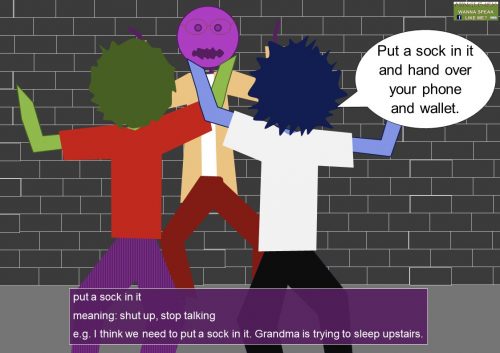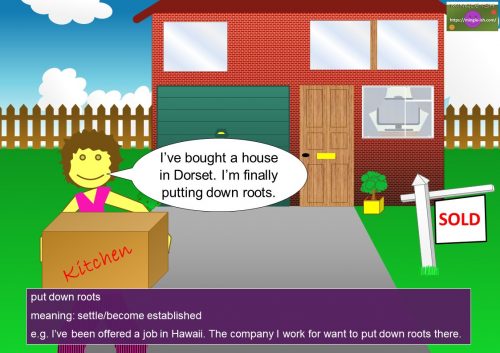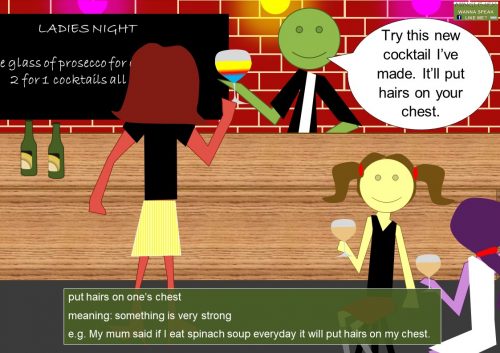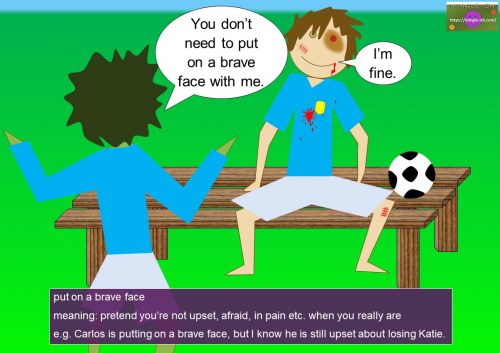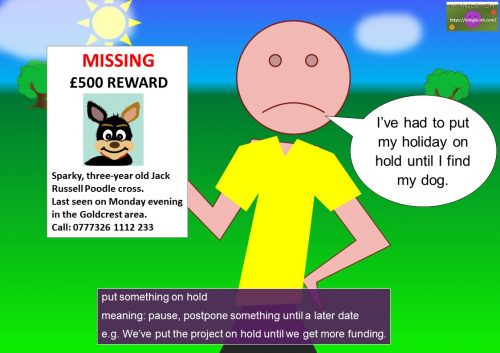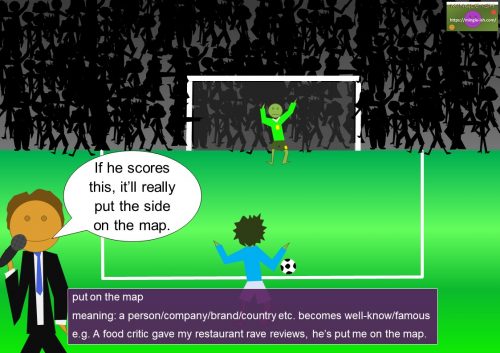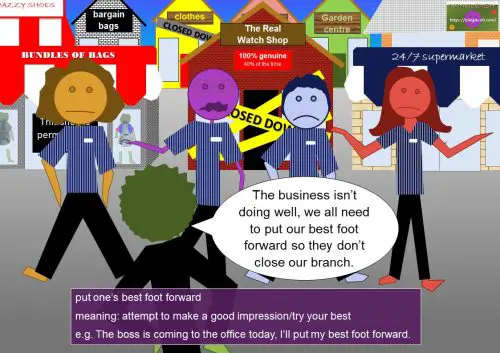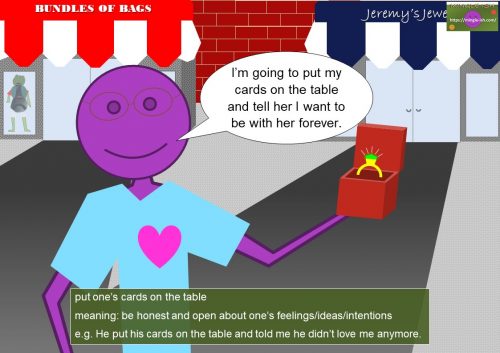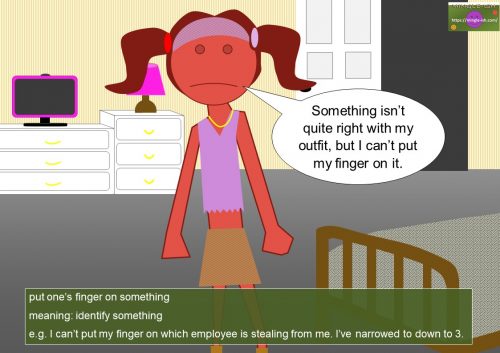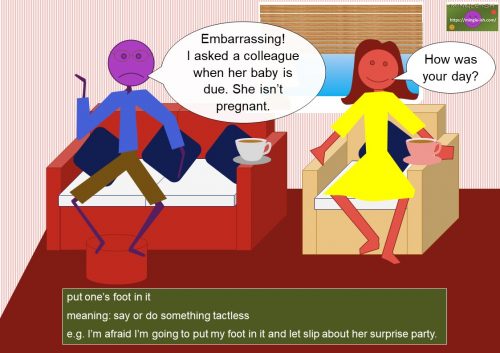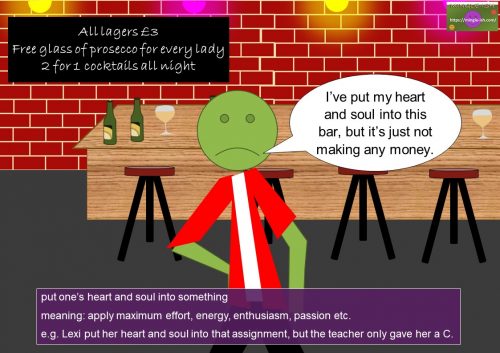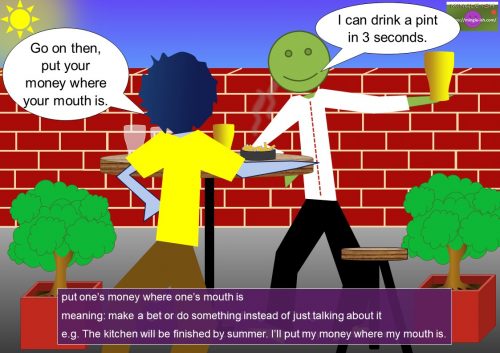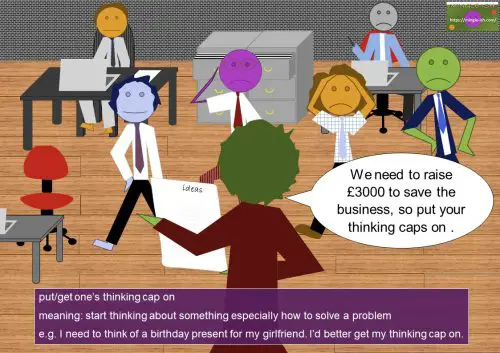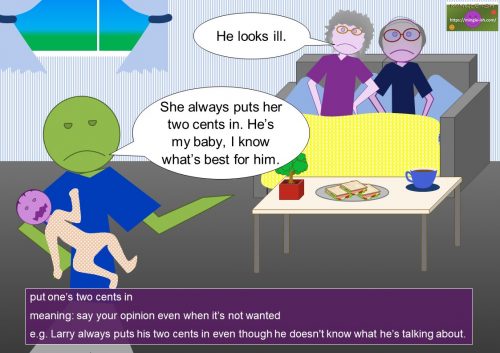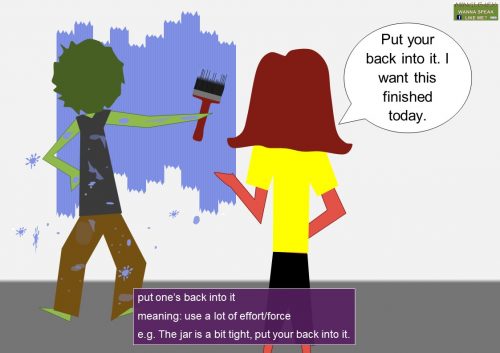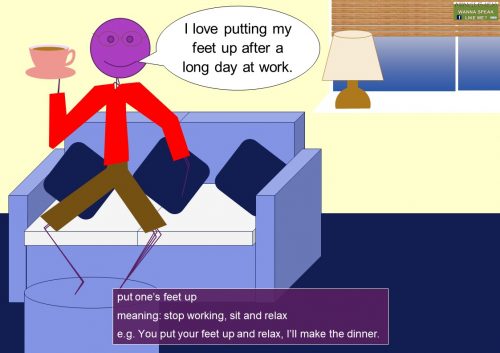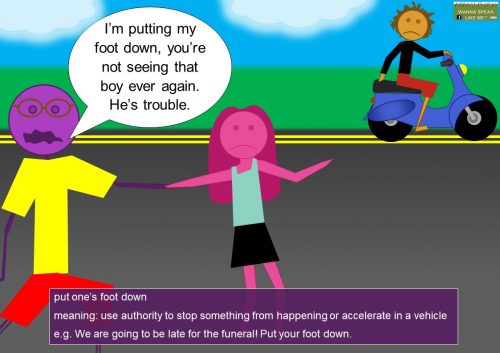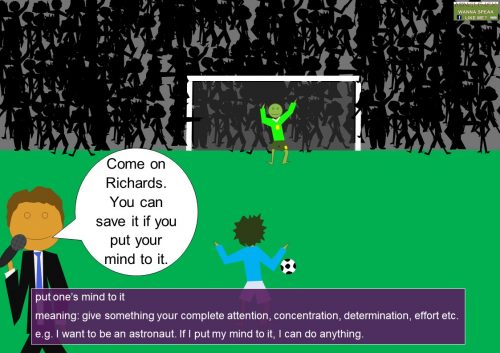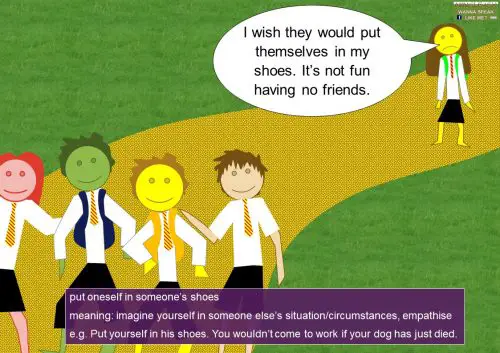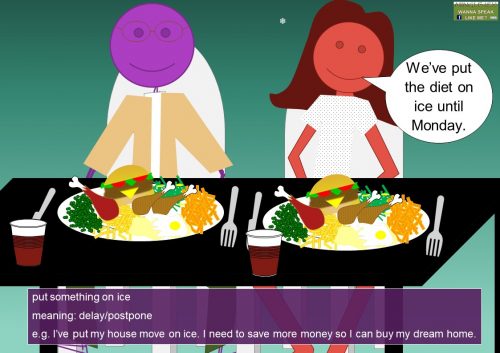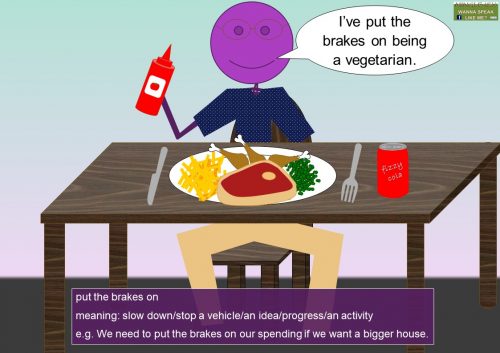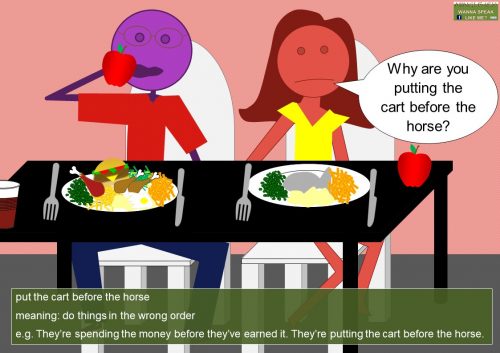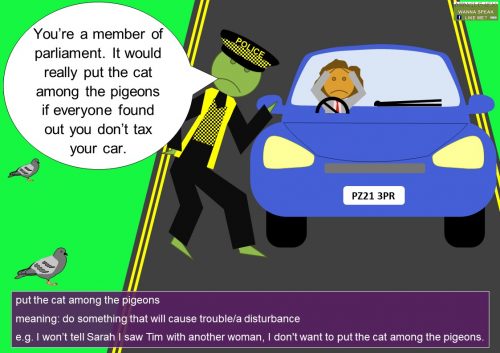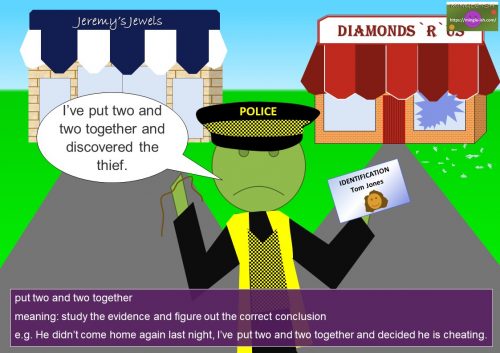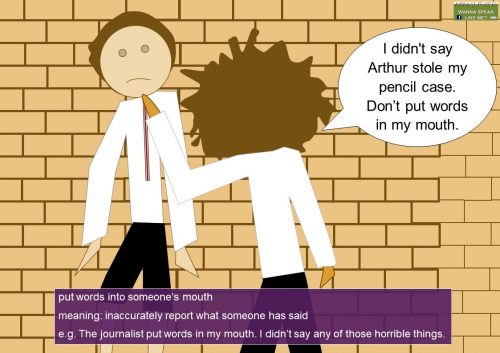The word ‘put’ can mean many different things. As a verb, the meaning is to place an object or bring into a particular state.
For example:
- Put your hands up in the air. (place an object)
- He put me in a difficult situation. (bring into a particular state)
Put is an irregular verb. The past tense is put and the past participle is put.
idiomatic phrasal verbs
Did you know phrasal verbs are sometimes used in idioms? See if you can spot any. If you don’t know any phrasal verbs with ‘put’, click here to learn them.
idioms list with ‘put’
- put a sock in it – shut up, stop talking
e.g. I think we need to put a sock in it. Grandma is trying to sleep upstairs. - put down roots – settle/become established
e.g. I’ve been offered a job in Hawaii. The company I work for want to put down roots there. - put hairs on one’s chest – something is very strong
e.g. My mum said if I eat spinach soup everyday it will put hairs on my chest. - put money on someone/something – bet, predict to be true
e.g. I’ve put a lot of money on the blues to win today. - put on a brave face – pretend you’re not upset, afraid, in pain etc. when you really are
e.g. Carlos is putting on a brave face, but I know he is still upset about losing Katie. - put on hold – pause, postpone something until a later date
e.g. We’ve put the project on hold until we get more funding. - put on the map – a person/company/brand/country etc. becomes well-know/famous
e.g. A food critic gave my restaurant rave reviews, he’s put me on the map. - put one’s back into it – use a lot of effort/force
e.g. The jar is a bit tight, put your back into it. - put one’s best foot forward attempt to make a good impression/try your best
e.g. The boss is coming to the office today, I’ll put my best foot forward. - put one’s cards on the table – be honest and open about one’s feelings/ideas/intentions
e.g. He put his cards on the table and told me he didn’t love me anymore. - put one’s feet up – stop working, sit and relax
e.g. You put your feet up and relax, I’ll make the dinner. - put one’s finger on something – identify something
e.g. I can’t put my finger on which employee is stealing from me. I’ve narrowed to down to 3. - put one’s foot down – use authority to stop something from happening or accelerate in a vehicle
e.g. We are going to be late for the funeral! Put your foot down. - put one’s foot in it – say or do something tactless
e.g. I’m afraid I’m going to put my foot in it and let slip about her surprise party. - put one’s heart and soul into something – apply maximum effort, energy, enthusiasm, passion etc.
e.g. Lexi put her heart and soul into that assignment, but the teacher only gave her a C. - put one’s mind to it – give something your complete attention, concentration, determination, effort etc.
e.g. I want to be an astronaut. If I put my mind to it, I can do anything. - put one’s money where one’s mouth is – make a bet or do something instead of just talking about it
e.g. The kitchen will be finished by summer. I’ll put my money where my mouth is. - put one’s two cents in – say your opinion even when it’s not wanted
e.g. Larry always puts his two cents in even though he doesn’t know what he’s talking about. - put oneself in someone’s shoes – imagine yourself in someone else’s situation/circumstances, empathise
e.g. Put yourself in his shoes. You wouldn’t come to work if your dog has just died. - put something on ice – delay/postpone
e.g. I’ve put my house move on ice. I need to save more money so I can buy my dream home. - put the brakes on – slow down/stop a vehicle/an idea/progress/an activity
e.g. We need to put the brakes on our spending if we want a bigger house. - put the cart before the horse – do things in the wrong order
e.g. They are spending money before they’ve earned it. They’re putting the cart before the horse. - put the cat among the pigeons – do something that will cause trouble/a disturbance
e.g. I won’t tell Sarah I saw Tim with another woman, I don’t want to put the cat among the pigeons. - put two and two together – study the evidence and figure out the correct conclusion
e.g. He didn’t come home again last night, I’ve put two and two together and decided he is cheating. - put words into someone’s mouth – inaccurately report what someone has said
e.g. The journalist put words in my mouth. I didn’t say any of those horrible things. - put/get one’s thinking cap on – start thinking about something especially how to solve a problem
e.g. I need to think of a birthday present for my girlfriend. I’d better get my thinking cap on.
Let’s see these idioms with pictures and meaning using real-life scenarios.
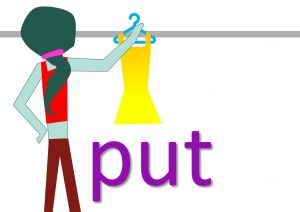
Psst…
Hey, did you know the verb ‘put’ has many phrasal verbs. Since you like idioms and phrases, you obviously want to improve your fluency and speak like a native.
Am I right?
I thought you might like to learn the phrasal verbs with ‘put’ too. They are very common in informal English and great to know/be able to understand if you happen to be speaking to a native. We use them all the time, like literally ALL the time.
